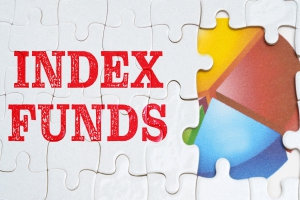
If you are a new investor, you might have been advised to start your investment journey by investing in index funds. There might be a host of reasons for this, but the main ones are usually related to the minimal costs and simplicity of investing in index mutual funds. The ability to avoid intensive market research and time the trends or market cycles are some other reasons why index funds are so popular. Mutual fund schemes that mirror the underlying index in terms of portfolio composition and performance are known as index funds. The composition of index funds is such that it attempts to copy the underlying index as far as possible, thus offering returns in line with the performance of the index. For instance, if you invest in a Nifty index fund, your mutual fund will mirror the underlying index and feature the stocks comprising Nifty50, thus allowing you to, indirectly, invest in the top 50 companies listed on the Nifty index.
Things to consider before investing in index funds
Before investing in any mutual fund, you should consider your investment objective and investment strategy basis the following points:
- Your financial goal
- Your investment time horizon
- Your risk tolerance
- Your return expectation
Index funds are a good option for you if you are keen on participating in the growth of the market but are concerned about the sharp movements of the equity market and would also like to keep an eye on costs. Unlike actively managed mutual funds wherein portfolio managers strive to offer market-beating returns, index funds are passive schemes tracking the underlying index. This makes them much more cost-effective as almost all of your money will be invested in the index fund, with only a negligible amount being charged as fees.
If you prefer predictable returns and want to invest in equities without taking on too much risk, index funds are a good option for you. Such investments will help you earn returns in tandem with the index and, as the value of indexes grows over time, there is low risk of your wealth diminishing in the longer term.
Read more: How To Select Index Mutual Fund?
Pros and cons of investing in index fund
Like there are two sides to every coin, every investment has its pros and cons. Knowing them will help you understand whether a particular investment is a good fit in your investment portfolio. Below, the pros of investing in index funds:
- Mitigate risks:Index funds often help you reduce overall portfolio risk as most companies in top indexes are large cap companies, which means that you can look forward to stable returns at low risk.
- Lower expense ratio:An important benefit of investing in index funds is the low expense ratio or the fee charged by fund managers.
- Another important aspect is that of diversification: Index funds allow you to diversify across sectors through a single mutual fund scheme.
- Taxation:Another point in favour of investing in index funds is that, since they fall under the equity category, your investment gains will be taxed according to the capital gains tax levied on equity schemes. If you hold your investment for more than one year, your capital gains worth up to 1 lakh rupees will not attract any tax whatsoever. Only gains in excess of 1 lakh rupees will attract tax.
As with everything in life, index funds also have some drawbacks. If the index plunges due to market volatility, your investment will fall accordingly, unlike an active fund wherein the fund manager may take steps to mitigate potential losses. Separately, index fund returns will always be in line with the underlying index, whereas active funds have the potential to offer market-beating returns, albeit at a higher risk.
Now that you know all about investing in index funds, it is time to decide whether or not it is the right fit for your investment objective. Based on your decision, you can choose from a variety of index funds tracking a number of different securities and begin building your portfolio.
An investor education initiative by Edelweiss Mutual Fund
All Mutual Fund Investors have to go through a onetime KYC process. Investor should deal only with Registered Mutual Fund (RMF). For more info on KYC, RMF and procedure to lodge/redress any complaints, visit -https://www.edelweissmf.com/kyc-norms
MUTUAL FUND INVESTMENTS ARE SUBJECT TO MARKET RISKS, READ ALL SCHEME RELATED DOCUMENTS CAREFULLY
Trending Articles
MUTUAL FUND INVESTMENTS ARE SUBJECT TO MARKET RISKS, READ ALL SCHEME RELATED DOCUMENTS CAREFULLY.















